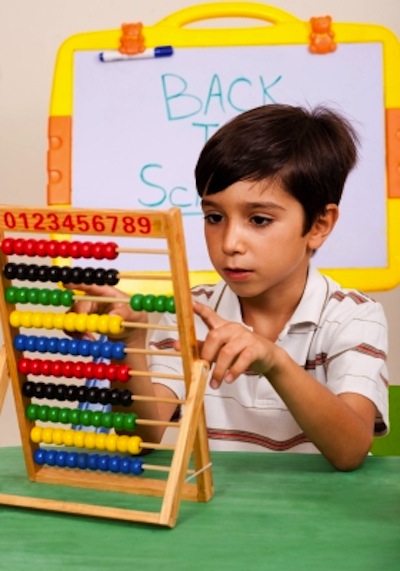15 Ways to Prepare Your Child for Their First Day of School
The first day of preschool is a scary one, both for you and your child. Here are some ideas for how to make that big step easier on both of you:
1. Pay a visit.
Visit the classroom with your little one to get them excited. This will not only create excitement, but help eliminate the first day nerves. Meeting his or her new teacher will also help by giving them a familiar face on the first real day of school.
2. Discuss the activities.
Tell your child what they’ll be doing every day. Think of it as explaining their schedule, even if they don’t have a firm grasp on time just yet. This way, when their teacher says, “OK. It’s snack time,” it will be an activity that your child remembers from their schedule. Schedules provide comfort and make the day flow more smoothly.
3. Pack their favorites.
A lunchbox filled with your child’s favorite snacks is a surefire way to chase some first day jitters away.
4. Leave a love note
First days are always a little scary so let your little one know you’re thinking of them. Leave a note in their lunchbox. Picture notes are great for those who aren’t reading quite yet.
5. Read books about preschool.
Reading stories out loud about how exciting preschool is will give your little one something to look forward to.
6. Buy the gear.
Go out together to shop for a new backpack, notebooks and crayons. New school supplies that he or she helped pick out will make them feel extra prepared and look forward to the big day.
7. Ask them.
Ask your child how they’re feeling. Are they excited? Are they nervous? Not only will talking through feelings prove therapeutic, but you may be able to put some of their worries to rest.
8. Set up play dates ahead of time.
If you receive a class list before preschool starts, give some of the parents a call. If your child has the opportunity to play with one or two of his or her new classmates before preschool even starts, she or he’ll be able to spot a familiar face on the first day.
9. Talk about the potty routine.
Many kids have just finished potty training when they start preschool. They may feel nervous about having to go while they’re in a new place. Talk about this before hand. Make sure they understand what steps to take. “Ask your teacher first.” “Don’t forget to wash your hands.”
10. Consider sending a comfort item.
If your child has a favorite blanket or stuffed animal, send it along with them. It will comfort them, especially during naptime when they’re trying to fall asleep in a new place. Just be sure to double check with the preschool to make sure it’s OK first.
11. Start bringing preschool up in day-to-day activities.
If your child draws a colorful picture, say “I bet you’re going to get to make other art projects like that at preschool.” If you see your little one share a toy, applaud them by saying, “Great job! Your new school friends are really going to love when you share with them.”
12. Share your own stories.
Reassure your little kiddo that when you started preschool, you were scared too, but then tell them about all of the fun you had and friends you made.
13. Goodbye routine.
Create your very own goodbye ritual. Maybe you sing a little song or give each other a hug and a kiss on each cheek. Maybe you recite a goofy poem. Routine makes kids feel safe so figure out your parting ritual and practice it before the big day. That way, when it comes time for the real deal, all the drills before hand will make using it for real, a treat.
14. Don’t linger.
If you look afraid, your child will pick up on it. And if you stick around too long when dropping them off, they’ll sense that something is wrong. You need to be as brave as you’re telling them to be. So put on a big smile and let your child know how excited you are for them to be taking the next big step!
15. Be on time.
Be on time when you pick up your child. Not only is it scary to watch all of the other classmates leave with their parents, while yours is nowhere to be found, but showing up late looks just plain irresponsible. So be there when you are supposed to be to pick up your child and hear all about their preschool adventures.
Sources:
-“10 Ways to Prepare Your Child for School.” Parents.com
-Fox, Isadora. “First Day Jitters: Getting Kids Excited About Preschool.” Parents.
-“Tips for the first day of preschool.” Babble.
-Photo courtesy of photostock/freedigitalphotos.net
3 Ways to Help Your Child Reach Their Full Potential
With the job market in its current state, colleges getting more expensive and scholarships getting pickier and more difficult to obtain, the need to help your child reach their full potential is becoming increasingly important. The importance of outshining fellow classmates has become an obsession for many. We’ve put together a few steps to help your kiddos be as great as they can be without putting too much pressure on them:
Step 1: Talk to your child
Ask them questions from when they’re learning to talk to when they’re leaving for college. Ask them about their day. Ask their opinions. Ask about their goals. Throw in a few challenging vocab words when you’re asking these questions. Even if your little one doesn’t know exactly what they mean, he or she can use the context of the question to figure them out, teaching important problem solving skills.
Step 2: Read to your child
Reading stimulates parts of the brain that talking and playing don’t. It also helps grow children’s vocabulary pools and literacy. Keep plenty of books around the house and make sure to take fun trips to the library. Read aloud to them, but also encourage them to read on their own. Ask them what they’re reading about and teach by example by making sure you’re reading in front of them.
Step 3: Praise results, but don’t fuss over shortcomings.
Did your child ace a spelling quiz or learn a new word? Tell them how awesome that is! Don’t necessarily buy them a special toy or treat though. You want to make it clear that getting results is important in itself, not a way of getting presents.
However, don’t make a big deal out of a mistake or not coming in first. Failures are just another way of learning. Remind your child of the valuable lesson they’ve learned and ask them what they think they could do next time to improve. Doing this will set progression tools for the rest of their lives.
Sources:
-“How to Raise Gifted Children.” Parenting.com
-Photo courtesy of photo stock/freedigitalphotos.net
7 Ways to Promote Early Education
 It’s never too early to start actively enforcing your toddler’s learning, even before they head to preschool. Simple, every day activities promote early education, putting your child in peak learning shape for when they do head to school.
It’s never too early to start actively enforcing your toddler’s learning, even before they head to preschool. Simple, every day activities promote early education, putting your child in peak learning shape for when they do head to school.
Stick to a routine. Consistency is grounding and gives children a sense of trust. Once their environment is stable, they’ll be more open to learning, especially at an early age.
Hit the books early. Just because your child can’t read on their own quite yet, doesn’t mean they don’t love to read. Reading out loud can help jumpstart reading skills. Plus, reading to your little one helps build basic skills like speech, sentence structure and the abcs of learning (like reading from left to right).
Let them help with every day tasks. There are measuring lessons in cooking, color recognition in laundry and biology lessons in gardening. Learning every day tasks will not only teach responsibility and the jobs themselves, but there are mini lessons to be learned with each activity.
Participate. Joining in and guiding result in more effective learning than simply telling children what to do. Kids learn by example and, especially at young ages, often mirror their parents and teachers. They’ll learn faster if they have someone to observe and copy.
Communicate. Simply talking and listening to your child will help them learn. They want to both ask you questions and share their theories and experiences. Listen when they do and actively respond. If your child is telling you about coloring at a play date, ask what they drew and why they chose that subject. Talk about their favorite colors.
Encourage creativity. Youngsters learn by imagining and imitating through dress up and pretending. Encourage them to express themselves and make believe. These behaviors are their way of understanding and digesting the world around them.
Time and patience are key. Take things slow and one day at a time. Just like adults, children have good and bad days. It’s your job to remain consistent and loving, not frustrated. Plus, overstimulation is never good. A slow, steady pace gives your little one time to digest all of the new information they’re taking in.
Sources:
-Serge, Irene. “Time to Get Serious About Early Learning.” Eye on Early education. November 28, 2012. < http://eyeonearlyeducation.org/2012/11/28/time-to-get-serious-about-early-learning/>
-“10 Reasons Why You Should Read to Your Kids” Early Moments. < http://www.earlymoments.com/Promoting-Literacy-and-a-Love-of-Reading/Why-Reading-to-Children-is-Important/>
-“Promoting Learning.” BornLearning.org. http://www.bornlearning.org/default.aspx?id=17
-“Early Learning at Home and in Preschool.” 4Children.org. http://www.4children.org/issues/2012/spring/early_learning_at_home_and_in_preschool/
-Photo courtesy of sheelamohan/freedigitalphotos.net
Martin Luther King Jr. Day with Kids
Celebrate Martin Luther King Jr. Day with kids. Appreciate the changes he made in society by explaining them to your little ones and organizing some fun activities. Here are some ways that you can celebrate Dr. King’s birthday with your child:
Bake a diverse dinner.
Explain to your child that Martin Luther King Jr. appreciated diversity. To celebrate, have your little one help you make a diverse dinner spread. Include an African appetizer, a German entrée, a Greek salad and an Iranian dessert. Not only will your little one be learning about all kinds of important cultures, but they’ll also be expanding their taste palette.
Visit a house of worship.
Dr. King was a minister so celebrate his birthday by appreciating his love of religion. Even if you’re not religious. If you do practice a faith, trying attending a service that believes in a different one than your own. If you’re Jewish, head to a Catholic service. If you’re Lutheran, visit a Baptist church.
I have a dream.
Tell your child about how Martin Luther King Jr. had a dream that his children would one day live in a nation that would not judge them by the color of their skin. Then ask about his or her own dream. Make the activity more fun by drawing pictures of these dreams.
Create your own parade.
Reenact a peace parade in your neighborhood. Have your children decorate their bikes and make peace posters. Encourage them to invite their friends and march through the neighborhood in the name of peace, diversity and Martin Luther King Jr.’s birthday.
Sources:
-“Martin Luther King Jr. Day: Activities for Celebrating with Your Kids.” Family Education
-“Martin Luther Kind Jr. Day.” Primary Games
-“Educate and Celebrate Martin Luther King Jr.” She Knows Parenting.
-Photo courtesy of Salvatore Vuono/freedigitalphotos.net















